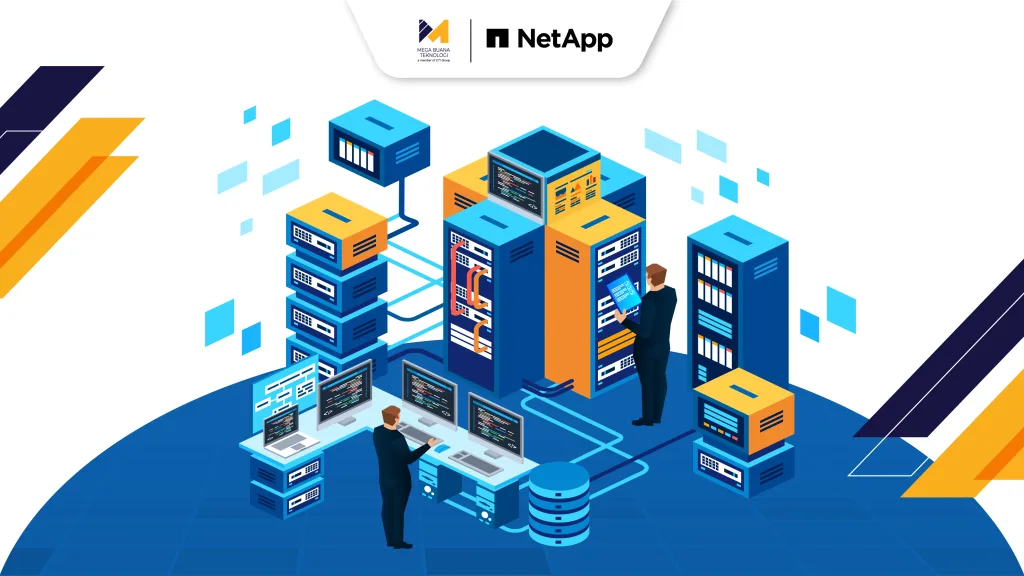
The General Data Protection Regulation (GDPR) has become the global gold standard for personal data protection. Achieving compliance requires a structured and strategic approach and one of the most effective ways to do that is through smart, well-managed data practices.
In this article, we’ll take a closer look at what GDPR is, how it impacts global businesses, and how effective data management can help your organization stay fully compliant.
What Is GDPR?
The General Data Protection Regulation (GDPR) is a landmark privacy law designed to give individuals greater control over their personal information while setting strict obligations for organizations that collect, store, or process that data. It was first introduced in 2016 and officially enforced on May 25, 2018.
Although GDPR was created by the European Union, its scope is global. Any company that collects or processes the personal data of EU residents must comply — regardless of where the company is based. That means even an Indonesian business running an e-commerce website or a personal blog accessible to EU users is subject to GDPR requirements.
Key Protections Under GDPR

GDPR requires all organizations — public or private — that handle EU citizens’ data to adopt specific safeguards and maintain full transparency about how that data is collected and used. The law’s main goal is to strengthen individual privacy rights and ensure accountability in data handling. Some of the most important principles include:
Clear Consent for Data Collection
Companies must obtain clear, explicit consent before collecting or using anyone’s personal data. The consent process should be written in simple language and be easy for users to understand and withdraw at any time.
Protection of Sensitive Data
GDPR places tight restrictions on the handling of sensitive information such as racial or ethnic origin, political opinions, religious beliefs, union memberships, health or genetic data, and biometric identifiers like fingerprints or facial scans.
Online Identifiers and Location Data
Cookies, device IDs, and IP addresses are treated as personal data and must be protected accordingly. When combined with other data, these identifiers can reveal detailed insights into a person’s online behavior.
Transparency and Data Usage
Organizations must be open about how they use, share, and store personal data — including any third-party sources, such as data brokers or social media platform
Right of Access and Deletion
Individuals have the right to know what personal information a company holds about them and can request that it be deleted at no cost.
Data Portability
Individuals can download and transfer their personal data to another provider — for example, moving their banking or social media information to a different platform with ease.
Privacy by Design
Privacy protection should be built into systems and processes from day one. This includes minimizing data collection, applying pseudonymization, and encrypting data. When new technology poses potential risks, companies are expected to run privacy impact assessments before processing begins
Mandatory Data Breach Notifications
If a cyber incident results in a data breach, companies must promptly inform affected users and notify relevant authorities.
How GDPR Impacts Businesses
GDPR has effectively become the global standard for data protection. For individuals, it ensures strong legal safeguards for personal privacy. For companies, it introduces clear obligations and potential financial penalties.
Businesses that fail to comply can face fines of up to 4% of their annual global revenue or €20 million (about $21 million USD) — whichever is higher. While smaller local websites without international traffic may be exempt, any business handling EU user data must take compliance seriously.
How to Achieve GDPR Compliance
To ensure your company complies with GDPR, there are two main steps you need to take. First, create a clear and comprehensive privacy policy. This policy should clearly describe in detail how user data is collected, used, and protected. Make sure it is easily accessible and understandable to all users.
Second, implement data management tools that allow you to identify the types of personal data collected. Ensure that this data is stored accurately and remains relevant. These tools also help track data flow, enabling companies to respond quickly to cyberattacks. In accordance with GDPR regulations, users must be promptly notified in the event of a breach.
By following these two steps, your company will be on the right track toward achieving GDPR compliance and better protecting users’ personal data. To simplify your journey, there are two data management solutions you can use — continue reading below for more details.
Recommended Data Management Solutions for GDPR Compliance

Data management is the foundation of GDPR compliance. It involves securely collecting, storing, and utilizing information in a way that’s efficient, cost-effective, and fully transparent. The goal is to help organizations get the most value from their data while maintaining legal and ethical responsibility.
When it comes to compliance, two of the most effective and trusted data management solutions come from Oracle and MySQL.
Oracle Data Management
Oracle Data Management offers a comprehensive suite of tools to help organizations manage data efficiently and securely. The platform provides advanced features for storage, analytics, and compliance — ensuring that every aspect of data handling meets global security and privacy standards.
Here are the key aspects of data management offered by Oracle Data Management:
- Data Warehousing: Collect and consolidate data from multiple sources for deeper analytics.
- Data Mining: Identify patterns, trends, and insights within large datasets.
- Data Integration: Combine data from various systems into a single, unified repository.
- Data Governance: Define clear policies and standards for consistent, compliant data practices.
- Data Masking: Protect sensitive information by converting it into anonymized, non-identifiable formats.
- Data Migration: Seamlessly transfer data between systems based on business needs.
- Data Replication: Perform regular backups to prevent data loss and ensure fast recovery.
- Data Quality Management: Continuously assess and improve data accuracy, consistency, and reliability.
With these features, Oracle Data Management ensures that data is managed securely, systematically, and in full compliance with regulations. This solution enables companies to manage their data efficiently while providing strong protection for personal information.
MySQL Data Management
MySQL Data Management provides a reliable and flexible way to store, organize, and secure information. As one of the world’s most popular database management systems, MySQL is known for its performance, scalability, and ease of integration — making it ideal for everything from small web applications to large enterprise systems.
Here are the essential features of MySQL Data Management you should know:
- Installation and Configuration: Set up and customize MySQL databases for your organization’s specific environment.
- Database Object Creation: Build tables, indexes, and stored procedures for effective data organization.
- Data Administration: Add, update, delete, and manage records with precision.
- Performance Optimization: Fine-tune parameters, optimize indexing, and improve database efficiency.
- Backup and Recovery: Regularly back up data and apply robust recovery strategies to prevent loss.
- Security Management: Protect data through strong authentication, authorization, and encryption.
- Routine Maintenance: Conduct regular patching, tuning, and system monitoring for long-term reliability.
MySQL Data Management empowers organizations to handle data securely, efficiently, and with proven reliability. Supported by a global community and a rich ecosystem of tools and resources, MySQL is an ideal choice for effective data management and achieving GDPR compliance.
Read more: “What Is Enterprise Data Management and How It Helps Optimize Your Company’s Data Strategy.”
Talk to MBT About GDPR Compliance Solutions
Want to know how data management can help your business achieve GDPR compliance? Get in touch with Mega Buana Teknologi (MBT) link.
As an authorized distributor of Oracle and MySQL, MBT’s experienced IT specialists can guide you through the entire process — helping you avoid trial and error and implement effective solutions the first time.
With 24/7 IT support, MBT ensures your company gets reliable, end-to-end service — from initial setup to post-deployment optimization — so you can maintain compliance and protect your customers’ trust.
Author: Wilsa Azmalia Putri
Content Writer, CTI Group




